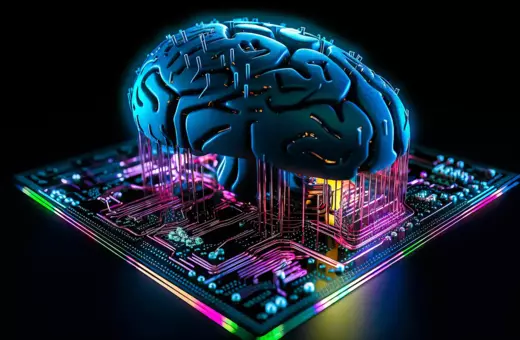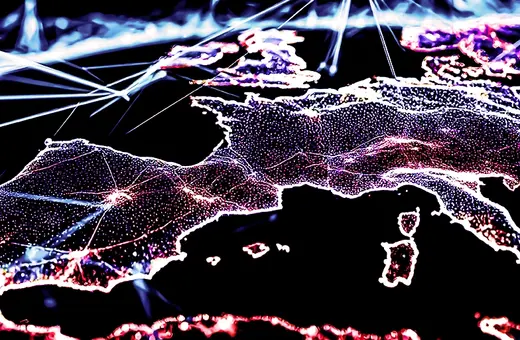Blockchain holds the promise of helping us out of the grips of our current Big Tech, digital feudalism. Through decentralisation, big corporations and governments may lose their influence over the digital landscape. However, power games will still be played in the new world of blockchain, and we must work hard to make sure that it is once more not solely the rich who hold all the cards, write Wessel Reijers and Morshed Mannan.
In a recent article for The New Yorker, Charlie Dektar envisions what a deactivation procedure for Facebook’s planned ‘metaverse’ might look like: a user cowering before the throne of a Mark Zuckerberg avatar, who with menacing calm dispatches the supplicant from his digital realm.
This dystopian vision speaks towards a growing public concern with digital feudalism. Large platform operators are seen as feudal lords of their respective walled gardens. In these gardens, the lords are able to arbitrarily exercise their whims on users and workers, while simultaneously extracting rents from them. Rents range from the commodification and sale of user data, via the exploitation of zero-hour contract workers hired by the platform, to the intensified surveillance of both groups.
While similar charges have been levelled against the corporatization of the Internet, the global scale and astronomical sums involved in the contemporary iteration of digital feudalism are unprecedented. The opacity and unaccountability of the decision-making processes of platform operators has led to an erosion of trust - where users, workers, and governments cannot expect operators to respect their interests. Political mobilization concerning the ‘trust crisis’ of Big Tech has generated tension between Silicon Valley and regulators across the globe.
With the dystopian vision of the metaverse, tech giants are openly revealing their ultimate dream to become the government.
With the dystopian vision of the metaverse, tech giants are openly revealing their ultimate dream to become the government. The governments of nation-states, meanwhile, are increasingly aware of the threat of digital feudalism. China recently clamped down on its powerful tech sector. In the US Congress, an increasing number of representatives raise their voice in favour of breaking up the American tech giants. Similarly, in the European Union, a legislative proposal on digital markets seeks to temper the unfair practices of these "gatekeepers" by, among other things, requiring their services to be interoperable with third parties under certain conditions.
Back to the Future
The global crisis of trust posed by cyberspace might remind us of a similar crisis during the financial crisis of 2008. Yet, while that trust crisis threatened our financial systems, the current crisis strikes closer to the core of our societies. Democratic values and liberal governance have now come under threat.
Back in 2008, a little-known peer-to-peer payment system took on the powerful financial sector. Today, almost everyone has heard about Bitcoin and the blockchain technology that powers it. While the technology is now clouded in ‘get rich quick’ narratives, its initial raison d'être was its capacity to dismantle the need for trusted third parties.
While the technology is now clouded in ‘get rich quick’ narratives, its initial raison d'être was its capacity to dismantle the need for trusted third parties.
A blockchain functions as a distributed database to which transactions are sequentially added in ‘blocks’ to a peer-to-peer network. Public blockchain systems operate transnationally, make use of cryptographic techniques and pseudonymous user profiles, and are not subject to arbitrary coercion as blocks are added on the basis of consensus. This last feature has produced the popular belief that blockchains are ‘immutable’.





















Join the conversation